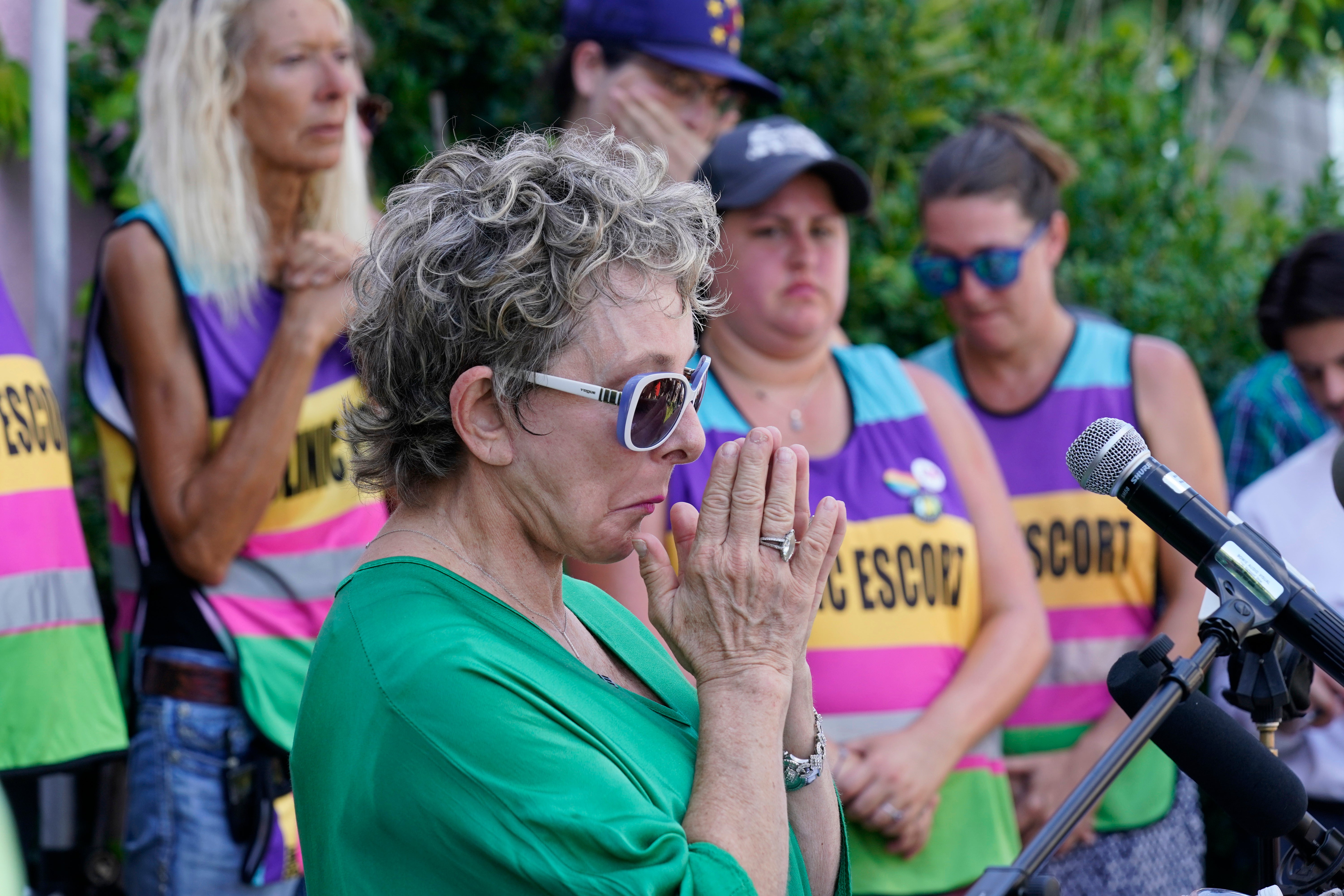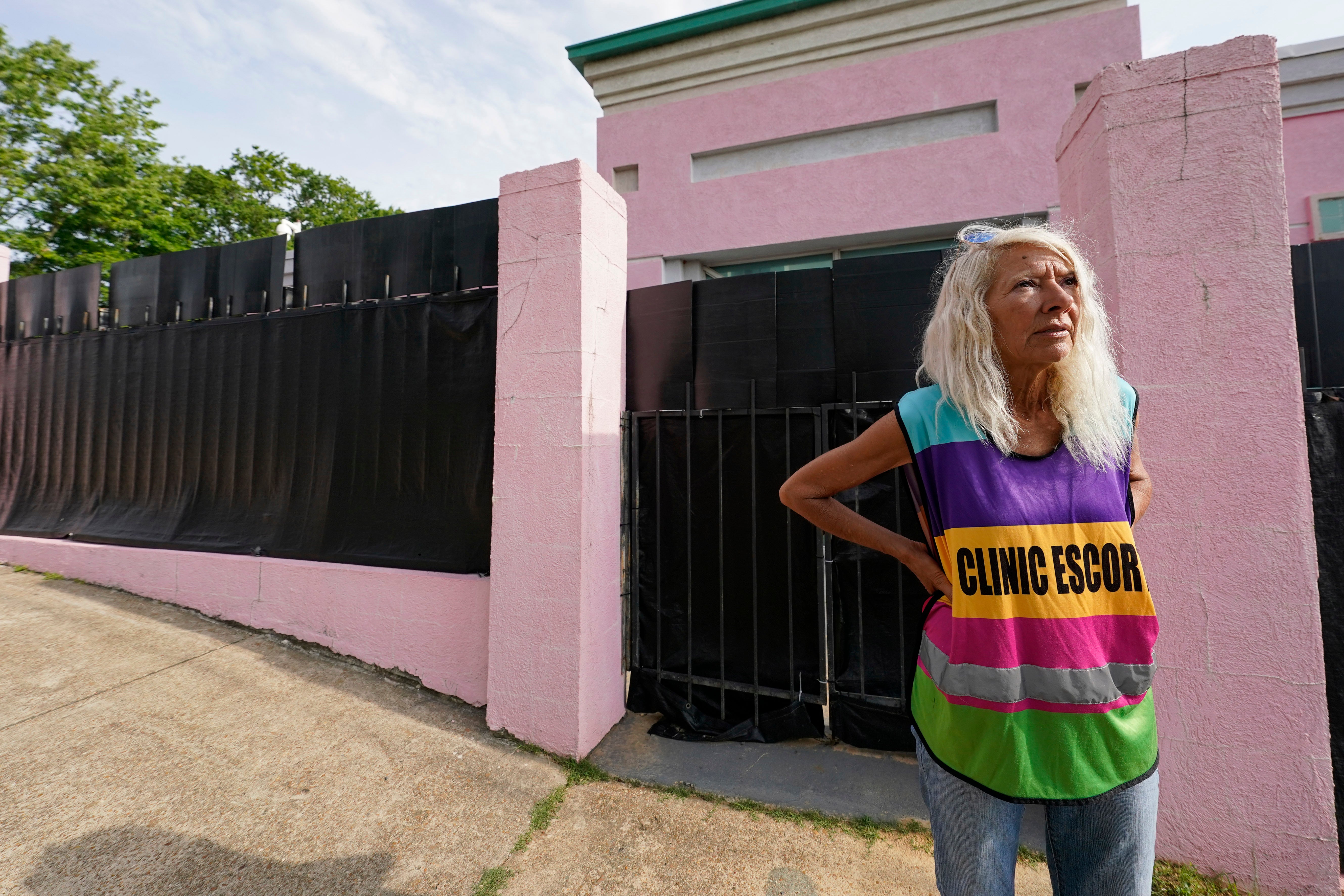Mississippi’s only abortion clinic vows to help ‘every woman’ before it shutters
Interview: Clinic owner Diane Derzis tells Andrew Buncombe fight to help women will not stop now


Your support helps us to tell the story
From reproductive rights to climate change to Big Tech, The Independent is on the ground when the story is developing. Whether it's investigating the financials of Elon Musk's pro-Trump PAC or producing our latest documentary, 'The A Word', which shines a light on the American women fighting for reproductive rights, we know how important it is to parse out the facts from the messaging.
At such a critical moment in US history, we need reporters on the ground. Your donation allows us to keep sending journalists to speak to both sides of the story.
The Independent is trusted by Americans across the entire political spectrum. And unlike many other quality news outlets, we choose not to lock Americans out of our reporting and analysis with paywalls. We believe quality journalism should be available to everyone, paid for by those who can afford it.
Your support makes all the difference.Diane Derzis says she and her staff are angry and upset. They are also very determined.
After the Supreme Court overturned Roe v Wade, and the top legal official in the state the “certified” a 2007 trigger law banning all abortions, they had 10 days to see as many patients as possible before the only clinic of its kind in all of Mississippi closed it doors, perhaps forever.
That means that until July 6 – with the exception of the July 4 holiday when they could not get a doctor – Derzis and her staff will be working with little rest to help women from Mississippi and the region get an abortion until it becomes illegal.
“We are up and running. We’re seeing patients and we will see patients through July 6,” Derzis, 68, tells The Independent. “After that point, we will not do abortions in the state of Mississippi.”
Since 2010, Derzis has owned the Jackson Women’s Health Organisation, better known as the Pink House, and which for many years has been the sole abortion clinic in a state with one of the highest rates of poverty, of maternal mortality and of teenage pregnancy.
The clinic itself, with its famous pink-painted walls and located in the state capital, Jackson, has operated since 1996, helping countless women from the state and the wider region, most recently assisting patients from states such as Texas and Louisiana, where abortion bans are already gone into place.
As a sole provider in what some have termed “an abortion desert”, the Pink House has come to take on more and more significance, both to its detractors who will delight in its closure, and its defenders, who even at that this late stage are still trying to find a way to save it.
Indeed, it was a lawsuit to try and block a 15-week ban on abortions that ended at the Supreme Court, where the conservative justices – three of them appointed by Donald Trump – scrapped Roe, the culmination of a strategy that had been decades in the making by conservative Christians.
This week, several organisations acting on behalf of the clinic, filed another lawsuit in a county court, arguing Mississippi’s own constitution protected a woman’s right to abortion, and that was not impacted by last week’s 5-4 decision that scrapped Roe after 49 years.
The lawsuit argues that in a case from 1998 known as Pro-Choice Mississippi v Fordice, the Mississippi Supreme Court ruled that “[n]o right is held more sacred . . . than the right of every individual to the possession and control of his own person….no aspect of life is more personal and private than those have to do with one’s own reproductive system”.
Rob McDuff, a lawyer with the Mississippi Centre for Justice, one of the groups that has long helped the clinic, says that Mississippi’s constitutional provision of abortion was not examined back in 2007, when the trigger law was passed, “because the federal constitution has protected the right to abortion in the federal courts”.
“We had no need to go to state court and invoke the Mississippi Constitution until now,” he says. “On Friday, the US Supreme Court dismantled federal constitutional protection, and on Monday, we filed our lawsuit under the state constitution.”
Asked about the chances of the lawsuit succeeding, he says: “If the Mississippi state courts adhere to what they said in 1998, we will be successful.”
Mississippi Attorney General Lynn Fitch formally certified the trigger law on Monday, setting the 10-day countdown in motion.
“As we have said throughout this case, Roe v Wade presented a false choice between a woman’s future and her child’s life,” she said in a statement.
On Thursday, a spokesperson for Fitch, Debeee Hanckock, said: “We do not comment on pending litigation. But the Supreme Court was clear Friday and we will fight to sustain that victory for Mississippi.”
Derzis says she gives her clinic’s lawsuit a “one per cent” chance of success and sees it as a long shot.
“I think that pretty much [sums up how we feel] – sad, angry and when that happens, people have been motivated even more deeply, to continue doing what they know is right,” says Derzis.
“It’s all those emotions. You don’t work in an abortion clinic for the money. There’s not enough money to do that. You have to have the passion help people. And that is what they have done.”

Derzis, who lives in Alabama, says she bought the clinic in 2010, after the death of her friend, celebrated abortion-rights activist Susan Hill, a one-time president of the National Women’s Health Organisation, who died that year,
The clinic had been established in 1996, at a time when abortion facilities across the nation were often being attacked.
Between 1993 and 2009, four abortion providers were targeted and killed, including David Gunn, who was shot dead outside his clinic in Pensacola, Florida.
The attacks forced places such as the Pink House to adopt more stringent security. In Sioux Falls, South Dakota, another state with a lone abortion provider that has now been closed, there was a time when at least one of the doctors who flew in from out of state to carry out the abortions – no physician in South Dakota would do so – wore body armour.
After a Planned Parenthood clinic in Colorado Springs, Colorado, was attacked in 2015 resulting in the death of three people, an article in Vox noted that a total of 10 people had been murdered by anti-abortion extremists. It added that since 1977, there had also been 17 attempted murders, 42 bombings and 186 arsons.
Over the years, the Pink House has received plenty of threats. This week, as the countdown has begun, staff and patients are reported to have felt anxious.
For much of the last year, and particularly after Texas imposed a near-total ban on abortion, she has been trying to help women in Mississippi – as well as in Virginia, South Carolina and Georgia where she also owns clinics – and plan for the post-Roe battleground.

So while the team in Jackson is working to help as many women as possible in this final week – she estimates they can assist a couple of hundred women – she is also preparing to open a new clinic in Los Cruces, New Mexico, around 1,000 miles away.
Many of the staff, including its medical director, Shannon Brewer, are planning to make the move to New Mexico, says Derzis.
She says there is a sadness that the staff will have to leave their homes in Jackson, and “now the women in Mississippi are going to have a tough time to get an abortion”.
She says across a vast swathe of the nation, “hundreds of thousands of women” are going to travel last distances or else rely of abortion medication sent through the mail. Many states have said they will also seek to prosecute people sending such medications through the post.
“That’s what the United States of America now looks like for the women that reside in those states,” she says. “That’s what we have come to.”
Derzis says she is trying to hire additional doctors for the last week the clinic remains open, and have “two or three doctors” working at a time.
She says she believes the clinic will be able to help several hundred women before the Pink House finally closes its doors.
She adds: “As many who want to come, we will be able to see them.”



Join our commenting forum
Join thought-provoking conversations, follow other Independent readers and see their replies
Comments